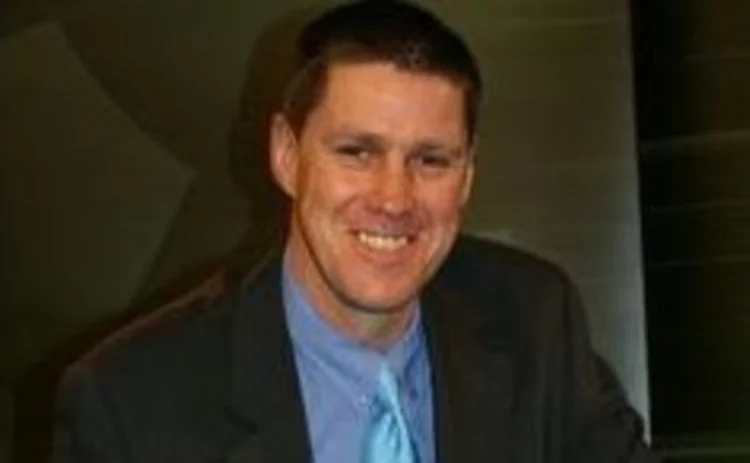March 2013: It Takes a Thief to Catch a Thief

The parallels that exist between the regulatory bodies responsible for monitoring and regulating the global capital markets, and the Union Cycliste Internationale (UCI), the Aigle, Switzerland-based cycling governing body established in 1900 that now oversees all aspects of international cycling, are obvious. Both groups are clearly underfunded, both are patently one step behind the wrongdoers they are responsible for overseeing, and both have been relatively ineffective to date.
Until now, that is. The UCI, still chronically in need of new blood—pun intended—and sweeping reform, seems to have turned the corner on the organized doping front thanks to improved technology, cooperation between various countries’ anti-doping agencies, and advice from former professional cyclists, many of whom have since admitted to sophisticated doping practices during their racing years, even though the majority were never caught. Years ago, while I was racing in South Africa, there were rumors circulating about a local pro who was dabbling in Equipoise, an anabolic steroid developed primarily for use in horses, designed to, among other things, enhance protein synthesis and stimulate the release of erythropoietin (EPO) in the kidneys. In other words it was perfect for cycling. I remember clearly during races, guys in the bunch neighing and whinnying like excited horses whenever he was in close proximity. The point is, this guy wasn’t so much a step ahead of the authorities as he was a country mile, given that he was never going to fail a test for a substance no one in their right mind would ever use—even though there have since been a number of positive tests for it around the world.
In his monthly column, James Rundle comments on the recent UK court ruling against Swift Trade and its layering activities that, when investigated, led to the Canadian day trader closing its doors, before finally receiving an £8 million ($12 million) fine from the UK’s Financial Services Authority for its troubles. James goes on to describe how the US Securities and Exchange Commission (SEC) has enlisted Redbank, NJ-based proprietary high-frequency trading firm Tradeworx to build a trade-monitoring system that the SEC intends to use to identify market abuses. This move is commendable and is clearly a step in the right direction for the SEC, but why stop there? Surely, what’s really needed to sharpen its claws is the establishment of an elite core of trading specialists—ideally ones that flouted the market regulations during the course of their careers—who have first-hand knowledge of how to identify illegal opportunities and exploit loopholes in the current legislation governing the US capital markets. Only when the SEC enlists the help of a “thief” to catch a “thief” will it enjoy any appreciable success in this respect.
Only users who have a paid subscription or are part of a corporate subscription are able to print or copy content.
To access these options, along with all other subscription benefits, please contact info@waterstechnology.com or view our subscription options here: http://subscriptions.waterstechnology.com/subscribe
You are currently unable to print this content. Please contact info@waterstechnology.com to find out more.
You are currently unable to copy this content. Please contact info@waterstechnology.com to find out more.
Copyright Infopro Digital Limited. All rights reserved.
As outlined in our terms and conditions, https://www.infopro-digital.com/terms-and-conditions/subscriptions/ (point 2.4), printing is limited to a single copy.
If you would like to purchase additional rights please email info@waterstechnology.com
Copyright Infopro Digital Limited. All rights reserved.
You may share this content using our article tools. As outlined in our terms and conditions, https://www.infopro-digital.com/terms-and-conditions/subscriptions/ (clause 2.4), an Authorised User may only make one copy of the materials for their own personal use. You must also comply with the restrictions in clause 2.5.
If you would like to purchase additional rights please email info@waterstechnology.com
More on Regulation
Waters Wavelength Ep. 312: Jibber-jabber
Tony, Reb, and Nyela talk about tariffs (not really), journalism (sorta), and pop culture (mostly).
Experts say HKEX’s plan for T+1 in 2025 is ‘sensible’
The exchange will continue providing core post-trade processing through CCASS but will engage with market participants on the service’s future as HKEX rolls out new OCP features.
No, no, no, and no: Overnight trading fails in SIP votes
The CTA and UTP operating committees voted yesterday on proposals from US exchanges to expand their trading hours and could not reach unanimous consensus.
Big xyt exploring bid to provide EU equities CT
So far, only one group, a consortium of the major European exchanges, has formally kept its hat in the ring to provide Europe’s consolidated tape for equities.
Jump Trading CIO: 24/7 trading ‘inevitable’
Execs from Jump, JP Morgan, Goldman Sachs, and the DTCC say round-the-clock trading—whether five or seven days a week—is the future, but tech and data hurdles still exist.
Pisces season: Platform providers feed UK plan for private stock market
Several companies in the US and the UK are considering participating in a UK program to build a private stock market composed of separate trading platforms.
How to navigate regional nuances that complicate T+1 in Europe
European and UK firms face unique challenges in moving to T+1 settlement, writes Broadridge’s Carl Bennett, and they will need to follow a series of steps to ensure successful adoption by 2027.
Nasdaq leads push to reform options regulatory fee
A proposed rule change would pare costs for traders, raise them for banks, and defund smaller venues.








